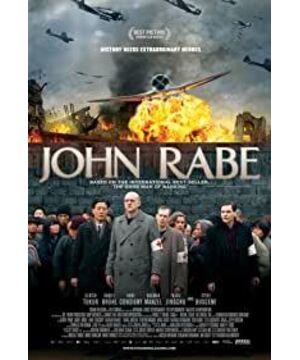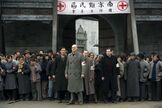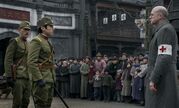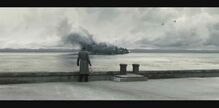It's a pity that the film lacks scenes of Japanese atrocities (and even reflects the Japanese army's rationality), and Zhang Jingchu's role is more. There are also scenes of Xiangyan's rounds, I didn't expect the actresses to be so good.
If you don't know about the Nanjing Massacre or Zhang Chunru's book before, this movie will look a little more tired, or lack of understanding of the three most representative Westerners of Rabe Weitlin Wilson. After all, this movie has no The other contributions of the other two were portrayed, and even Rabe himself drove to Nanjing City to save people. Another point, there is a scene in the movie where the Japanese army asked Weitling to ask the students to be rejected, but in fact, Wei handed over 100 women to the Japanese army that year. I think she was helpless at the time. If she didn't hand over 100 students, maybe all the other female students would be ravaged by the Japanese army. It is mentioned in the movie that Wei hid so many Chinese soldiers. I don't know if it is truthfully reflected according to the description in Rabe's diary.
Unfortunately, because of the German-Japanese alliance, Rabe's efforts in Germany for the people of Nanjing became his reminder. Although people in Nanjing in 1948 donated money and materials to him, because of his Nazi identity, unfortunately, he ended up being a Nazi. Still suffering from a double-layered mental and physical torture, he died of a stroke. Vettelin finally committed suicide because of what she saw and heard in Nanjing.
Wilson was slightly better, but still because he worked 24 hours a day and relied on adrenaline to support him, the side effects became more and more obvious after that, and his mental and physical conditions were not very good.
It's good to know that this film was released in Germany and won the German Film Award, in short, more people in the world are paying attention to the Nanjing Massacre.
View more about John Rabe reviews











